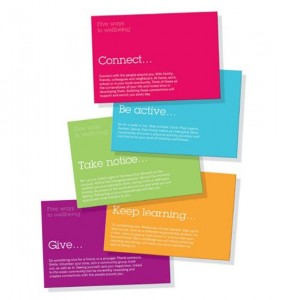London, Friday night. A street crossing somewhere near Liverpool Street, in the direction of Shoreditch (where the hipsters live). It’s raining a bit. I’m wearing a heavy backpack in which I carry my life of a week. All other people cross the red light. I marvel at them, take my time wait for the traffic light to turn green first.
I just got back from a five-day course on the economics of happiness. I spent the week at Schumacher College, a ‘community college’/university in Devon, South-West England. Schumacher College is a special place. Students, teachers, volunteers and temporary guests are jointly responsible for the community. They take turns taking care of the kitchen, the garden and the day opening.
Living at the college is an intense experience. A lot of learning takes place through continuous reflection and discussions at the breakfast table. The sense of community and the feeling of being in touch with nature is a massive contrast with the abundance of grumpy Tube travelers and the ubiquity of commercial chains and ads in London.
During the week, I learnt a lot about happiness research: from measuring happiness to genetics and happiness at work to new economics. But in this post, I’d like to face the biggest question there is:
What makes us happy?
We often speak about the secret of happiness or the key to happiness. I don’t think there’s anything secret about it. And there are many, many keys that open the doors to happiness. In most cases, we do know what makes us happy. Following our intuitive knowledge should do the trick.
Still, irrational beings as we are, we sometimes act against what makes us happy. Or we need help to distinguish our needs from mere desires (hint: we need connections with human beings. We don’t ‘need’ a 100 gram chocolate bar on Sunday evening. That’s desire). To help us understand what it is that makes us happy, Nic Marks and the new economics foundation have created an overview of five ways to well-being. Marks was one of our teachers of the week. He also worked on the Happy Planet Index and currently is at Happiness Works to bring well-being to the work environment.
These five ways offer a framework to understand our needs and can be used as invitation to engage in activities that make us happy. Though there’s research behind them, they shouldn’t be seen as scientifically sealed and approved suggestions. The five ways are:
- Connect… connect with other people, friends, family or people in your community
- Be Active… live an active life, via sports or being outdoors
- Take Notice… be aware and appreciate the environment around you
- Keep Learning… discover new things and develop new interests
- Give… give a gift, do something nice for someone, or say thank you
How about you try to integrate these in your daily life?
Don’t expect they’ll lead you to direct happiness. But it’s likely they’ll produce happiness as a side-effect!
Happiness as a balance between contentment and dreams
In my view, Take Notice is probably the most important one. One of the most interesting moments of my week was a breakfast chat with Satish Kumar, an Indian monk whose words are a fountain of wisdom. He spoke about contentment – full awareness and gratitude for everything you experience. This is certainly an important advice.
At the same time, dreams and objectives can also be helpful to give us guidance and to bring us further in life. I think we need to balance contentment with some degree of ambition. If we’re content with everything, is it still possible to achieve a higher ideal?
Nevertheless, almost all of us in today’s hectic society can learn from Satish. Let’s try to stop for a moment and dedicate full attention to the place where we are. Slowing down, looking around. It doesn’t hurt to spend a minute and a half at a traffic light in London.

